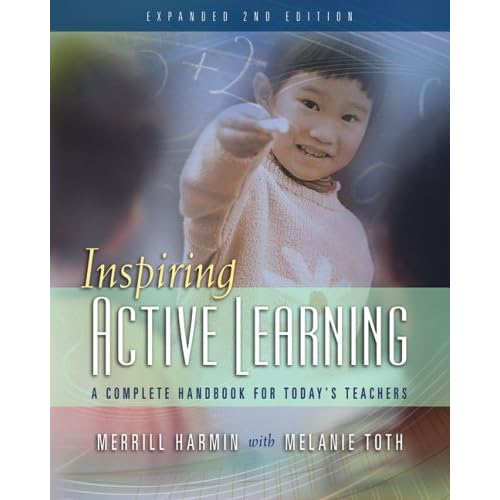Posts Tagged ‘failure’
 “Learn to be great.” ~ Doc Meek
“Learn to be great.” ~ Doc Meek

“Our deepest fear is not that we are inadequate. Our deepest fear is that we are powerful beyond measure. It is our light, not our darkness, that frightens us most. We ask ourselves, who am I to be brilliant, gorgeous, talented and fabulous? Actually who are you not to be? You are a child of the universe. You were born to manifest the glory of the universe that is within us. It’s not just in some of us; it’s in everyone.”
– Marianne Williamson (born 1952); author, lecturer
Quote from: Values.com
Thank you, Marianne Williamson, for helping us reach for the stars!
Doc Meek, Thurs, Feb 24, 2011, Calgary, Alberta, CANADA
 (1) Learning to run our own brain: Fear of failure
(1) Learning to run our own brain: Fear of failure
This is the first (1st) in a series of seven (7) articles on having fun learning how to manage our very own brain. – Doc Meek

Image above from Luciano Passuello: http://litemind.com/fear-failure/
If you missed the introduction to this series of seven (7) articles, just click on the title below:
(Intro) Learning to run our brain: 10 minutes daily
What are we talking about here?
In my intro above (posted Friday, June 25, 2010), I outlined seven (7) things we can learn about how to manage our own brain:
1) Fear of failure
2) The vital need for HOPE!
3) Qualifications for our external-to-the-home “brain coach”
4) Easy success with active learning brain training (filing cabinet brain) and remembering names
5) The eyes don’t see–the brain sees
6) Tasks of the “back 90%” of our brain, and the “front 10%”
7) Where do Moms come in?
How do I get started overcoming fear of failure?
Strangely (to some), the place to get started is to take a look at our fear of failure. Whether we are a student, a parent, or a teacher, the fear of failure can stop us before we even get started.
If we want to learn to run our own brain better, we need to take time to look at, and feel, our fears about undertaking such a project. Some say that looking at our fears first and feeling them only strengthens them. We will find it to be the opposite of that, I think. If we avoid looking at our fears, they will trip us up later and we will then indeed fail–the very thing we were trying to avoid, right?
Fears are actually our friends, if we choose to feel/see them that way.
Fears are my friends!?
Yes.
They alert us, in advance, what to watch out for as we go along, a kind of distant early warning signal that prepares us for “the worst” as we forge ahead, hoping for the best.
Isn’t that contradictory?
Seems that way, doesn’t it?
In reality, direct awareness of our very real fears allows us to plan ahead more carefully and to ride out our relapses and our failures with a degree of equanimity and resilience not otherwise available to us.
Isn’t that what our friends are for? 😮
To our friends!
Doc Meek, Sat, June 26, 2010, Sherwood Park, Alberta, CANADA (updated Oct 20, 2012)
P.S. Some extra reading–and some viewing–on how to overcome fear of failure:
(1) Article (Comprehensive):
If you want to read a comprehensive article on how to “Overcome Fear of Failure,” by Luciano Passuello, a Brazilian who lives in Curitiba, Brazil, and whose passion is the mind, just click on the title below:
Overcome Fear of Failure, Part I — Building the Right Mindset
 Hi, I’m Luciano Passuello. I am a 35-year-old Brazilian, currently living in Curitiba.
Hi, I’m Luciano Passuello. I am a 35-year-old Brazilian, currently living in Curitiba.
It was not long ago when I realized that my deep fascination for the mind is my greatest underlying passion which, in many ways, intersects with several other interests of mine.
This website is my journey exploring that underlying passion.
To get in touch with me, please use this contact page.
Image/text above from: http://litemind.com/fear-failure/
(2) Video (2 minutes):
If you want to watch a short video on overcoming failure by Brian Tracy, a Canadian who lives in San Diego, California, USA, click on the Brian Tracy photo below.
brian tracy fear of failure
2 min – 1 Oct 2006
Uploaded by funny1968
www.youtube.com
—
“What if you are smarter than you think?”

THE LEARNING CLINIC WORLDWIDE, INC.
CANADA: Dr. Meek (587) 400-4707, Edmonton, AB
TONGA: Mele Taumoepeau, P.O. Box 81, Nuku’alofa
USA: Dr. Meek (801) 738-3763, South Jordan, Utah
For optimum brain health, ensure your heart health:
More on heart health: http://www.themeekteam.info
USA: Jeannette (801) 971-1812; South Jordan, Utah
CANADA: Jeannette (587) 333-6923, Calgary, Alberta
CANADA: P.O. Box 3105, Sherwood Park, AB T8H 2T1
=========================================
 Dad can guarantee learning success for his children
Dad can guarantee learning success for his children
Image from: www.guidetocoachingsports.com/batting_tee.htm
Image may be subject to copyright.
The best tribute to pay Dad on Father’s Day
The best gift to Dad is to remind him of his power to guarantee the learning success of his children, no matter what the task.
My previous article, showing how Dad guaranteed success for his little son who was learning to bowl, was posted April 14, 2010. If you wish to see that, click on the URL immediately below:
Guarantee Learning Success for Everybody
Learning fears and humiliating failures can haunt learning for life
When youngsters are first learning a sport, they often have great fear of failure. They fear that they will prove incompetent, that they will fumble and look stupid and be embarrassed and on and on.
Often these initial fears, if not “cushioned” in some way, are fully realized as the child attempts a totally new set of tasks, and then the stark memory of learning failure may haunt him or her throughout life.
“Cushioning” these learning fears in some way can mean the difference between ongoing success in school and life, and ongoing failure in school and life.
Sports leaders can guarantee learning success
My brother attended a baseball game in which his young son was playing, and was impressed to see that the team leaders had provided many ways to guarantee learning success, by “chunking everything down,” as they say, breaking the multiple learning tasks into more easily-learnable segments.
Dad was delighted. His young son was delighted too. He could “smell success,” almost before he got started.
The sports leaders were affable and kind, radiating a generosity of spirit (as opposed to aggressive competitiveness and outbursts of anger).
First, even though this was a baseball game, the leaders were using a softball, bigger than a regulation baseball, so that the youngsters would find it easier to hit.
Second, the leaders mounted the ball on a short stand at home base, at just the right height for hitting, thus providing a “batting tee” for the aspiring baseball players. This “batting tee” is analogous to a “golfing tee,” except of course that it holds the ball much higher off the ground.
Regular baseball rules were modified
If the batter swung and missed the ball right in front of him, a “strike” was called of course. If the batter knocked the ball off the tee and the ball rolled into “foul” territory, a strike was called. No “balls” were called. The young players either “struck out” or ran. No “walking.”
If the batter knocked the ball off the tee and it rolled into “fair” territory, the batter ran.
If the batter hit the ball any distance, he ran of course.
Most plays were won on errors 😮
The young boys had a ball (no pun intended)! 😮
The leaders had a ball. The parents had a ball. Other spectators and bystanders had a ball. 😮
And the young players more easily mastered essential baseball skills, guaranteeing learning success. 😮
No child cried (except perhaps when they fell down swinging or running) and no child stayed home the next time a game was scheduled. 😮
All the players were successful in learning how to play baseball. More importantly, all the boys felt good about learning and playing, and having fun in the process. 😮
These “learning success” feelings often last a lifetime, helping the child experience learning success in school and work. 😮
Parents and teachers follow the same principles for learning success
Parents at home and teachers in the classroom follow the same principles to guarantee learning success in all endeavors. This is not easy to do. It is, however, do-able:
(1) Make the starting point easy and enjoyable, perhaps even fun.
(2) Chunk down the learning tasks into smaller, more easily-learnable segments.
(3) Modify the rules when necessary; create a community of learners.
(4) Leave aggression and competitiveness aside initially, and perhaps always. It can help us be better citizens. It can help us achieve a more cooperative and successful society.
(5) Smile. 😮
(6) Smile. 😮
(7) Smile. 😮
We can all even use these learning success principles with ourselves!
If we all laugh more, and take ourselves less seriously more, almost any learning task can be done successfully.
With good memories that last a lifetime.
To lifelong learning enjoyment!
Doc Meek, Sunday, June 20, 2010 (Father’s Day)
At Sherwood Park, Alberta, CANADA; not at South Jordan, Utah, USA
 “If you find you’re in a hole, stop digging.” – Found in an old Farmers’ Almanac
“If you find you’re in a hole, stop digging.” – Found in an old Farmers’ Almanac
Photo from website below:
http://www.thefreelancefarmer.com/2010/04/digging-hole-to-china.html ……………………………………………………………………………………..
Active Learning means changing your mind, changing your behavior
I think it was Bert Hellinger, a German psychotherapist, who said that he trusted people with their own problems.
Most of us don’t do that as a rule. We tend to want to fix other people’s problems, while ignoring our own.
I think Hellinger’s point is that most of us “like” our own problems, in the sense that when someone tries to relieve us of them, we dig in and demand our “right to do . . . ” whatever it is that we are doing [that is causing our problems].
Strange behavior, what?
As I used to say to clients:
“Most of us would rather keep the familiar old problem, than face the scary prospect of the unfamiliar new and different behavior. What if we fail at the new effort? Embarrassing. Better to keep the old pattern than risk a new pattern at which I might bomb.”
“That’s ridiculous,” my clients would say. “You’re telling me I like my problems? The ones that I am so vociferously complaining about to you?”
“You don’t actually ‘like’ them; you just would rather have them, maybe somewhat like ‘old and difficult friends,’ than face an unknown future, a scary future, trying to make new friends who may turn out to be worse than the old friends.”
The scary/wonderful future
Why don’t we just stop digging? Why don’t we admit that we really don’t wish to depart from our problems. Not right now anyway. Maybe tomorrow . . . tomorrow . . . “and yet again tomorrow” [shades of Shakespeare] . . . or maybe next week? Next month would be a good time to take this in hand. Or maybe next year?
“Let us not fear the scary/wonderful future,” says my friend.
This new and different way holds life in its hands, not the the death of the tired old present problems.
The scary/wonderful new pathway is far superior to the present rut-torn disaster, eh? 😮
The definition of insanity
“I respectfully suggest that the quote “The definition of insanity is doing the same thing over and over and expecting it to come out different” is a misattribution to both Franklin and Einstein. According to Google news archive, the earliest news article attributing the quote to Franklin is from 2004 [4]. The earliest attribution to Einstein is 1998 [5]. By contrast, the earliest Google news article that attributes “time is money” to Franklin is 1849 [6]
“The earliest news article in Google’s archives that has the quote “The definition of insanity is doing the same….” is 1991 to Zamberletti of the Vikings. He said “The definition of insanity is doing the same thing year after year and expecting different results” [7]
“The earliest reference to “insanity is doing the same thing over and over and expecting different results” is 1989 to David Boswell [8]
“The earliest reference to “the definition of insanity is doing…” is 1986 to Tony Elliott of the New Orleans Saints when he said “the definition of insanity is doing over and over again things that can kill you” [9]
“A similar quote is from “Sudden Death” by Rita Mae Brown, from 1983.
 “It’s OK to make mistakes . . . ” Dr. Merrill Harmin
“It’s OK to make mistakes . . . ” Dr. Merrill Harmin
It’s OK to make mistakes; that’s how we learn
When this “truth sign” was first posted in a teacher’s classroom, some people complained that the teacher was condoning, and even encouraging, bad behavior on the part of students. “Not so, ” say Dr. Merrill Harmin and his predecessor in classroom effectiveness, Grace Pilon.
When students lose fear of failure as they are encouraged to risk giving wrong answers, they become more involved in their own learning, and they not only learn more, they enjoy learning more.
Likewise, teachers enjoy the daily teaching-learning activities more.
Dr. Harmin, in his book entitled Strategies to Inspire Active Learning: Complete Handbook (1995-2002), for teachers and students, acknowledged his deep indebtedness to Grace Pilon’s pioneer work in increasing student achievement. Using active learning strategies means that not only are students getting higher marks, both teachers and students are enjoying the daily learning processes more.
Dr. Harmin repeated this acknowledgment of Grace Pilon’s leading-edge work in his expanded 2nd edition, entitled Inspiring Active Learning: A Complete Handbook for Today’s Teachers (2006).
Photo of Expanded 2nd Edition below is from Amazon.com

“I don’t care how much you know, until I know how much you care.” – Student
 “Honor is better than honors.” – Abraham Lincoln
“Honor is better than honors.” – Abraham Lincoln


They called him “Mr. Integrity”
My Dad, James Collins Meek II, worked for West Kootenay Power & Light Company (WKP&L) in British Columbia (BC), CANADA, for 42 years. Ultimately he became the supervisor for WKP&L in the Kelowna District. The company men in Kelowna dubbed him “Mr. Integrity.” They had many reasons for doing this.
One of the reasons they called him “Mr. Integrity” was that he always made sure that he spent company money as if it were his own money. And he was very responsible with his own money. One of the results was that the “integrity disease” became contagious and the men who worked for him caught the “disease” as well. This made for an honest and frugal operation, which the company greatly appreciated of course.
Dad also made sure that he gave value for his own personal labor dollar. It was important to him not to “waste time” on the job. Over time, his men followed suit. It became part of the culture of the company group.
What’s this got to do with learning?
Even respect and integrity can be learned.
The Retirement Celebration Joke
Karl Wolfe worked for my Dad in the Kelowna office of WKP&L, right up until the time my Dad retired. Karl had built a miniature electrical substation switchboard to be used to play a retirement celebration joke on my Dad.
The plan was to have Dad try to figure out how to make the correct critical sequence of electrical switching moves for several hypothetical high-voltage lines. This switching job was supposed to get the electrical power back on to an area whose high-line power source was down and out.
Then, because it was a very complex sequence of switching moves, the joke idea was to have him surely fail, sounding a big alarm buzzer. Whereupon one of “the boys” was going to pull the main switch for power to the hall we were in for the retirement party, plunge everything into darkness, and blame my Dad for the ensuing chaos.
“You’ve made a big mistake in the power switching!” they were going to yell. “You’ve made the power fail–all the way back to the hydroelectric dam power source!”
“Region-wide failure!”
All in “good fun” of course.
So the trap was set
Here’s where the integrity comes in. In multiple forms. Watch.
My Dad got up to face the challenge of this miniature switching panel. He could see this was a complex matter. He felt it would be a personal embarrassment if he failed in both his electrical knowledge and in his duty to protect the power delivery, even in this purely hypothetical case.
He knew nothing about the planned joke of course. He figured his men were simply giving him his “final test” in the power industry, prior to his retirement.
[Aside to the reader: power industry people see themselves as having an almost sacred duty to keep the power flowing, no matter what.]
My Dad looked at the complex switching task facing him, and knowing Karl Wolfe was a man of integrity, silently reasoned, “Karl built this switchboard, so I know he would not design it so as to guarantee failure and embarrassment. There is a way through, complex though it may be.”

Failure is not an option
My Dad just could not bring himself to fail in the power industry, even in this hypothetical case.
So he put his knowledge and experience to the test, worked methodically through the complex switching sequences, and wow! He got through it successfully without creating any massive power failures. Or little ones either. Bingo! The switchboard gave the “power restored” signal and Dad sat down satisfied.
All the men sat around dumbstruck.
The guy had succeeded, against all odds! They couldn’t play out the joke because he hadn’t failed!
[Personally, I would have just sounded the buzzer anyway, pulled the switch on the hall power, plunged the place into darkness, and played out the big “power failure” joke on my Dad anyway! :o]
The men had too much integrity for that. They had too much respect for my Dad.
The joke was based on Dad’s failing and he did not fail.
They honored his success.
To integrity!
Doc Meek, Sunday, June 6, 2010
At Sherwood Park, Alberta, CANADA
P.S. Contrasting News Item:
The money and valuables found in [this one drug lord’s house] would be enough to pay for health insurance for every man, woman and child in the USA for 12 years! There are believed to be approximately 27 more [drug lord houses in this particular country] not to mention the ones in other countries who are enriching themselves in the drug trade. These people have so much money, they make the Arab oil sheiks look like welfare recipients. Their money can buy the best politicians, the best cops, the best judges, whatever they need they just throw down stacks of cash and it is theirs! This is why the drug problem is so difficult to fight.
 |
 |
 |
 “A cold . . . causes less suffering than an idea.” – Jules Renard
“A cold . . . causes less suffering than an idea.” – Jules Renard
“A cold in the head causes less suffering than an idea.” – Jules Renard

Image from URL below:
http://www.cdc.gov/getsmart/campaign-materials/print-materials/FactSheet-RunnyNose.html ……………………………………………………………………………………………
Speaking for myself, when I have been involved in an activity, such as teaching or parenting, and I have developed (or learned by default) a set of activities, behaviors, and ideas, I tend to stick with them out of sheer practice. I do what I do. I am used to it, and I may not even question it. Especially I don’t question my own practices if I am so lucky as to feel a modicum of “success” in doing these things.
What a shock then, when unfolding events prove I have “missed the mark,” as it were, and failed to address the right set of parameters.
One example may suffice for now. This topic will require more discussion later I am sure.
Suppose I am teaching someone to read (or any other relatively complex task). I use the conventional methods that I know and perhaps some less-known methods as well, particularly if the student or child appears to be struggling with this new learning.
No matter the amount of effort I make, the learner doesn’t “get it.” I grow frustrated and try harder. Doing about the same things of course.
As Einstein said, “Doing the same things, and expecting a different result is insanity.”
The learner, meanwhile, looks around and sees that others are “getting it,” no problem, and concludes, “What’s the matter with me? I must be dumb.” And later, if the failure keeps up, “I am no good.” This is a killer of future potential, just as surely as a smashing car wreck.
Sometimes, the pupil just quits, “knowing” they are “never” going to “get it,” “never” going to “make it” to success.
Here I thought I was teaching reading (or whatever). I bent every effort in that direction. After all, learning to read is an important skill, right? A very important skill as a matter of fact! So I just keep flailing away . . . for the sake of the learner, you see?
So here’s the painful new idea:
I am not teaching reading (or whatever the needed skill is). I am teaching the learner how to fail. How to feel badly. Or worse: how to feel worthless. And how to give up hope!
Is this what I intended to teach? Of course not.
Now what?
Now it is me who feels like a failure. I feel badly. I may even want to quit. I may give up hope!
Teaching and parenting is like that. If you let it be.
Time out to seek a new idea, or many new ideas about how to teach learning success, not learning failure.
Yes. For the sake of the pupil. And me too.
Doc Meek, Friday, June 4, 2010
At Sherwood Park, Alberta, CANADA; not at South Jordan, Utah, USA
 Fail, Fail, Fail — That’s the Way We Learn
Fail, Fail, Fail — That’s the Way We Learn
The baby cries, laughs, frowns, smiles, and tries to grab on to everything within reach (and out of reach!). Fail, fail, fail. And fail again.
The baby keeps grasping, grasping, trying to do the impossible–control its arms and hands.
Fail, fail, fail, and fail again.
Finally, aha, success.
Smile.
The baby grasps and holds something in its grip.
And of course puts it immediately to its mouth.
Success!
And then more failure and more failure and more failure.
Sometimes tears. Mostly just continuing efforts to notice, to see clearly, to touch, to grasp.
Everything is new. And interesting. And even wonderful. The baby’s wonder and joy at learning every new and little thing inspires us. Reminds us to be open to new learning every day.
The mother or other guardian stands by, encouraging every bit of learning in the baby. Watching, caring, nurturing, loving. Stepping in to stop the baby if its learning drive puts it in danger of some kind. Standing back to let the baby learn so it can grow and develop into a self-managing person.
Change is easy for babies.
They are learning machines from birth onwards. And even before that. They are also teachers. They can teach us many things about learning, and loving learning. Babies are the supreme example of staying open to new learning every day, every hour. All the time.
Change is easy for babies because their early life epitomizes change. They are change, almost moment to moment.
Yet, in order to thrive, babies also need to be changed by others as well, to have their diapers changed, to have their location changed, by their mothers or others. Babies need to be fed, to be cared for, to be nurtured and to be loved by their mothers or others.
And in one sense this is true for all of us. We may be at a stage in life where we are still immediately within the sphere of our mother’s or another guardian’s influence, or we may be older and somewhat beyond the sphere of the influence of others. Or we may be much older and way beyond the influence of others. Or at least we think we are.
Still, whether we like it or not, we are somewhat influenced by our mothers or other early guardians until we die.
So it is with teachers. Our students are influenced, for good or ill, by what we do and say in the now–in the present moment–all the days of their lives, until they die.
Are our students grateful for us, now, in the present? And we for them? It is up to us. And it is up to them also. We can work together, today, to inspire each other to be the best that is in each of us. And the best will be different for each of us, and different every day as we work together.
Will our students be grateful for us in the future? And we for them? That is up to us. And them. What will we do for them, and for ourselves, today? What will we do all together to inspire each other along the pathway of learning?
Today. Right now.
When is a good time to change?
Now.
Yet we do not always remember the lesson of the baby, the lesson of the little child. That now is the moment, the only moment we have, to enjoy, to value, to change.
We can change in an instant. To anger, yes, and also to happiness, although it seems that we are quicker sometimes to change to anger than to change to inspiring moments, to uplifting present moments, to moments of interest, to moments of curiosity, to moments of learning, to moments of joy even.
Doc Meek
South Jordan, Utah, USA; Calgary and Edmonton, Alberta, CANADA
 Learning and Changing the Meek Way
Learning and Changing the Meek Way
“Dr. Meek brings a unique blend of warmth, intelligence and humor to everything he does.” – Calgary PROFILE Magazine
I glow when I see that comment about me and my work.
I also cringe.
What?
I cringe because I remember when I read this nice statement to myself once, my inner critic said:
“Always??? You bring these glorious attributes to everything???” Well, my inner critic had me there, didn’t he?
I have to confess that there is enough truth in this journalist’s statement about me and my work that it challenges me to live up to it. And I must confess also that I have trotted this statement out publicly on occasion when it seemed appropriate to do so. Thus, I am faced, just as you are, with trying to “walk my talk” or “practice what I preach,” even when it is someone else commenting about my work in helping children to overcome learning difficulties.
So how does this apply to learning?
My last name, “Meek,” in English means approximately: humble, teachable, open to new learning, angerless.
Since I am a “knowledge sponge” those meanings appeal to me! I want to try to live up to my name.
I want to learn how to live up to my name and also live the journalist’s kind statement . . . all the time.
And not “blow up” and “yell” when I am challenged by circumstances . . . ever.
Then I remember that what I really want is not to set myself up for certain failure. I want to make progress, not strive for elusive perfection (and then fall into despair when I slip, even just a little, even just once).
That’s what I teach my clients.
So we simply eliminate the word “always” and “never” from our vocabularies.
Why?
Because if I say, “I will always be warm, intelligent and humorous,” I’m a complete failure the first minute I frown, growl or yell. Ditto if I say, “I will never get angry.”
So we all together learn to change slowly by telling ourselves, and each other, over and over again:
“Progress, not perfection.”
More in another posting about setting and keeping high goals. Or maybe about setting and keeping low goals.
Doc Meek
South Jordan, Utah, USA; and Calgary and Edmonton, Alberta, CANADA

